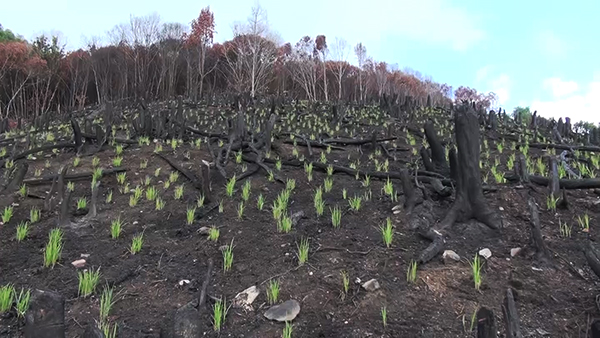 Locally referred to as Pangbara or Kambja, the upland paddy cultivation was an ancestral practice in eastern Bhutan in the lower and mid-altitude regions. But today, due to the easy access to cheaper rice through fair price shops and markets, not many people in the east grow upland rice. To revive the upland paddy cultivation and to achieve food self-sufficiency amid the pandemic, two households of Khangma chiwog under Yurung gewog in Pema Gatshel started the cultivation of upland rice.
Locally referred to as Pangbara or Kambja, the upland paddy cultivation was an ancestral practice in eastern Bhutan in the lower and mid-altitude regions. But today, due to the easy access to cheaper rice through fair price shops and markets, not many people in the east grow upland rice. To revive the upland paddy cultivation and to achieve food self-sufficiency amid the pandemic, two households of Khangma chiwog under Yurung gewog in Pema Gatshel started the cultivation of upland rice.
While many villagers were sceptical about the idea, 23-year-old Kencho Wangdi took the risk and decided to practice the upland paddy cultivation in his five acres of land which was left uncultivated for ages.
“Given the worsening pandemic situation, people are worried that they will not get a regular supply of cheap rice from neighbouring countries. As such, I started to plant the upland rice,” he said.
Likewise, Ugyen Dorji, another resident from the same village has also planted the upland rice on over an acre of land.
“We were informed that the government will provide seeds of ginger and paddy if anyone is interested. So, I started clearing the forest, thinking it would be better if we can do something during times of need. And I have also planted paddy in an area of over one-acre land,” he added.
Despite cultivating the upland rice for the first time, Kencho is confident of a good yield.
“I am expecting a good yield as I can see the paddy plants growing well. If the yield favors me, I will sell the products in the village first. And if there is any surplus rice, then I will take it to the market,” Kencho said.
However, since Kencho is growing the upland rice in a large area, protecting his crops from wildlife is becoming a daily challenge for him.
“I face some challenges in fencing the boundaries. Wild animals have started to damage my crops. For those who practised the cultivation earlier, it was not a problem as they grew the crop in groups. But for me, guarding my crops is becoming an everyday challenge,” he said.
Inspired by his efforts, other farmers of Khangma village are also planning to grow paddy and other crops as well.
“I have always said that His Majesty has gifted us with the land and now we should not abandon it. Due to the pandemic, if there is a disruption in the supply of food and essentials from other countries, then we must be ready. We have to be self-sufficient. We use to discuss with our elders and advice our youth to take up farming and grow as many crops as possible,” said Mindu Wangdi, another villager.
For now, going by the increasing number of villagers complaining about irrigation difficulties and more farmers showing interest in growing the upland rice, upland paddy cultivation can become the only rice cultivation method in Khangma village henceforth. Today, there are about 50 households in Khangma village.
Thinley Dorji, Pema Gatshel









